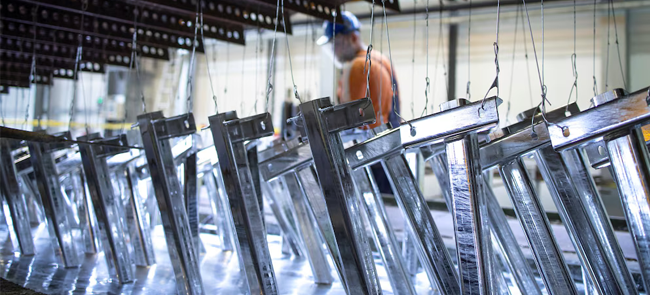
Yogiraj Alucast is the Manufacturer, Supplier, Exporter of Aluminium Gravity Die Castings (Aluminium GDC) Machined Parts / Components / Spares for Medical Equipment Industries and Our set up is in Kolhapur, Maharashtra, India
- Surgical equipments, Pharma equipments, medical devices, Pharmaceuticals manufacturing machines.
In the medical device industry, aluminium castings are used widely for various purpose. Using Aluminum in Medical Casting is preferred because it can save money, superior strength, supreme rigidity, and are light in weight. The most important aspects of aluminium castings in the medical device /pharmaceutical industry are clinical needs, uniqueness in design and convenience and patient safety.
At present, a vast majority of parts and components that are part of medicine/surgical devices are die casting. Aluminum casting offers a vast amount of benefits over other techniques in medical/medicine facility.
Aluminum alloys, which are used in the majority of medical casting work, have an exceptionally excellent strength-to-weight ratio. These alloys are robust and lightweight, which makes them ideal for mobile medical equipment, where stability is essential. Aluminum Medical Casting is a cost-effective process, ideal for producing complex shapes, suitable for medium to high-volume production
- Aluminum castings are widely used in medical equipment due to a combination of physical, mechanical, and economic advantages that make them ideal for the stringent demands of the healthcare industry.
- Aluminum castings are Lightweight yet Strong and reduces the overall weight of medical devices without compromising structural integrity. They are ideal for portable medical equipment such as mobile imaging units and patient monitoring systems.
- Aluminum castings have Excellent Thermal Conductivity which helps in heat dissipation, critical for electronics- heavy devices. It is used in diagnostic equipment (like MRI or CT scanners) and lab instruments that generate heat.
- They are Corrosion Resistance which helps to withstands frequent cleaning and sterilization processes, including exposure to harsh disinfectants. It is beneficial for Surgical tools, housings for sterilizers, and other components exposed to moisture or chemicals.
- Their High Dimensional Accuracy and Design Flexibility benefits complex shapes and thin walls that can be casted with precision, reducing the need for post-processing. It is used in Enclosures, brackets, and custom components tailored to specific devices.
- Aluminum alloys can be treated to meet biocompatibility standards and are applied to the parts that come into incidental contact with patients or sterile environments. Die casting in particular offers economies of scale, reducing per-unit costs. It is ideal for manufacturers looking to balance quality and affordability.
- Aluminum is highly recyclable, supporting eco-conscious manufacturing practices. It appeals to manufacturers pursuing green certifications and regulatory compliance.
Aluminum casting is widely used in the manufacture of medical equipment due to aluminum's favorable properties, including light weight, corrosion resistance, and biocompatibility. The process involves several precise and controlled steps to ensure high quality and reliability, which are critical in medical applications.
A detailed computer-aided design (CAD) is created to define the shape and specifications. Rapid prototyping techniques (e.g., 3D printing) may be used to test the design before production. Permanent mold (metal molds) are used for high-volume production. Die casting mold is used for high-precision components. Sand casting mold is used for low-volume, complex parts.
Aluminium ingots are melted in a furnace at ~660°C. Alloying elements (e.g., silicon, magnesium) may be added for enhanced properties. Depending on the method, casting can be done in several ways:
- In Die Casting the molten Aluminium is forced into a steel mold under high pressure ideal for high-precision medical device housings.
- In Gravity Casting the molten Aluminium is poured into the mold under gravity.
- In Sand Casting the Aluminium is poured into sand molds for larger or complex parts.
The molten metal cools and solidifies in the mold. Controlled cooling prevents internal defects like porosity or cracking. The mold is removed either mechanically or by breaking (in sand casting) and the rough casting is extracted. Trimming removes excess metal (flash, gates, risers). CNC machining is used for precision. Surface finishing is implemented for Polishing, anodizing, powder coating for corrosion resistance and hygiene.
In Inspection & Quality Control, Non-destructive testing (NDT) is performed in X-ray, ultrasonic, and dye- penetrant testing. Dimensional checks are done using CMM (Coordinate Measuring Machines). Material testing is done for Tensile, hardness, and composition tests.
In Sterilization preparation, all components are cleaned and prepared to meet medical hygiene standards. Some aluminum parts are designed to withstand autoclaving or chemical sterilization.
- Surgical instruments: Components like surgical instrument handles and parts often benefit from the precision and smooth surface finish achieved through die casting.
- Medical devices: Aluminum castings are used in various devices, including MRI machines, hospital beds, and other critical equipment, where lightweight and strong components are needed.
- Diagnostic equipment: Casing for imaging equipment and other diagnostic tools often utilize aluminum die casting for its precision and durability.
- Wheelchairs and other mobility devices: Aluminum's lightweight nature makes it ideal for components like frames and handles in medical equipment.
- Filters: Components for filters in medical devices often use aluminum castings for their corrosion resistance and ability to achieve intricate geometries.